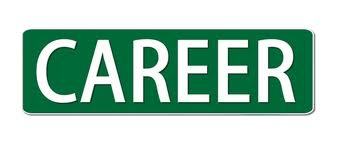A Career in Sociology
Sociology, the study of society, social change, social conditions and social life, is an exciting and fascinating discipline. Depending on your level of study, a degree in sociology will allow you to work in multiple capacities including international relations, social work, healthcare, child welfare, criminal justice, administration, education and business. Here¿s a look at some possible careers related to sociology. 
Job description: Clinical Sociologist
Qualification: Bachelors/Masters/PhD
Career Scope: Observe interactions of group members and identify the sources of group dysfunction. Develop solutions to group dynamics issues such as conflicts, group thinking, authority management, problem solving. A clinical sociologist often prepares questionnaires, conducts interviews and focus groups, does one-on-one consultations and monitors group behaviour.
Working conditions: Clinical sociologists work in an office environment and their jobs do not entail physically demanding labour. They are often brought in as consultants by companies and are given the facilities they need to do their job. Job description: Child welfare services/family services
Qualification: Masters in Sociology
Career Scope: Facilitating the wellbeing of families, especially the social and psychological development of children. A welfare service worker will usually provide counselling (on a broad range of issues including abuse, poverty, unemployment, disability, social adjustment etc.), maintain case files, perform follow-up checks and refer individuals to other services as necessary,
Working conditions: Family service workers typically work in an office and do not do physically laborious work. Occasional travel might be necessary. However, this job is emotionally gruelling and takes a lot of problem-solving skills and discretionary judgement. |  |

| Job description: Academia (teaching and research analysis)
Qualification: Masters/PhD in Sociology
Career Scope: Teaching students and pursuing research/data analysis in a diverse range of topics (stratification, class, wealth, income, religion, social structure and many more). As society evolves, sociology scholars are looking into more interdisciplinary topics such as military, law enforcement, and even the use of social media. They use both qualitative and quantitative methods to study sociological phenomena and develop test and extend theories. An academic sociologist also spends a lot of time teaching students, developing syllabi and reading lists, and evaluating course content.
Working conditions: Depending on one¿s research interests, an academic career in sociology could entail anything from sitting at an office desk for several hours a day to a significant amount of travel for data collection, and often involves participant or non-participant observation. |


